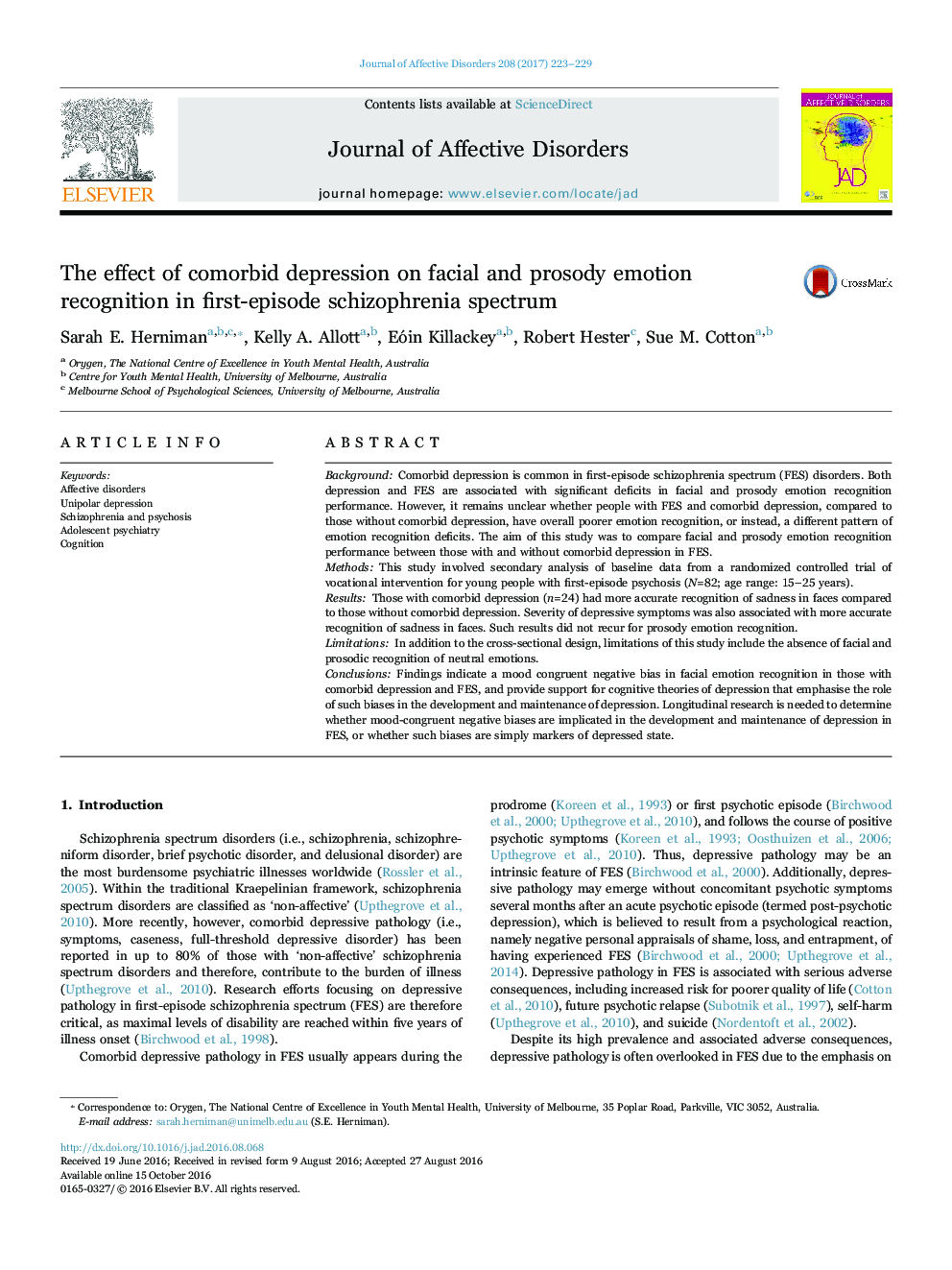| Article ID | Journal | Published Year | Pages | File Type |
|---|---|---|---|---|
| 5722081 | Journal of Affective Disorders | 2017 | 7 Pages |
â¢Over a quarter (29.30%) of FES patients had comorbid depression.â¢Those with comorbid depression had more accurate recognition of sadness in faces but not voices.â¢Those with comorbid depression may exhibit a mood-congruent negative bias.â¢Limitations include the absence of facial and prosodic recognition of neutral emotions.â¢Longitudinal studies are needed to further examine mood-congruent negative biases.
BackgroundComorbid depression is common in first-episode schizophrenia spectrum (FES) disorders. Both depression and FES are associated with significant deficits in facial and prosody emotion recognition performance. However, it remains unclear whether people with FES and comorbid depression, compared to those without comorbid depression, have overall poorer emotion recognition, or instead, a different pattern of emotion recognition deficits. The aim of this study was to compare facial and prosody emotion recognition performance between those with and without comorbid depression in FES.MethodsThis study involved secondary analysis of baseline data from a randomized controlled trial of vocational intervention for young people with first-episode psychosis (N=82; age range: 15-25 years).ResultsThose with comorbid depression (n=24) had more accurate recognition of sadness in faces compared to those without comorbid depression. Severity of depressive symptoms was also associated with more accurate recognition of sadness in faces. Such results did not recur for prosody emotion recognition.LimitationsIn addition to the cross-sectional design, limitations of this study include the absence of facial and prosodic recognition of neutral emotions.ConclusionsFindings indicate a mood congruent negative bias in facial emotion recognition in those with comorbid depression and FES, and provide support for cognitive theories of depression that emphasise the role of such biases in the development and maintenance of depression. Longitudinal research is needed to determine whether mood-congruent negative biases are implicated in the development and maintenance of depression in FES, or whether such biases are simply markers of depressed state.
